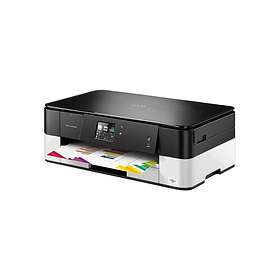
The Efficiency of the Mini Conference Hall
Companies and organizations continuously seek ways to maximize efficiency and productivity. One solution gaining popularity is the mini conference hall, a smaller, more intimate setting designed to facilitate meetings, presentations, and collaborative sessions. This article explores the efficiency of the mini conference hall, highlighting its advantages, applications, and the factors contributing to its effectiveness.
Advantages of Mini Conference Halls
-
Cost Efficiency: One of the primary benefits of mini conference halls is their cost efficiency. Large conference rooms can be expensive to build, maintain, and operate. They often require significant investment in infrastructure, technology, and utilities. In contrast, mini conference halls are smaller and more economical. They require less space, fewer resources, and lower operational costs, making them an attractive option for small to medium-sized businesses and organizations with limited budgets.
-
Space Optimization: Space is a valuable commodity, especially in urban environments where real estate costs are high. Mini conference halls make efficient use of available space, providing a functional and versatile area for meetings and events without occupying excessive square footage. This space optimization allows organizations to utilize their premises more effectively, accommodating various functions within a limited area.
-
Enhanced Collaboration: Mini conference halls promote enhanced collaboration by creating an intimate setting that encourages interaction and engagement. Smaller spaces foster a sense of closeness and connection among participants, facilitating open communication and idea-sharing. This environment is particularly conducive to brainstorming sessions, team meetings, and workshops, where active participation and collaboration are essential.
-
Flexibility and Adaptability: Mini conference halls are highly flexible and adaptable. They can be easily configured to suit different purposes and group sizes. For instance, they can be arranged in a boardroom style for formal meetings, a U-shape for interactive discussions, or a classroom setup for presentations and training sessions. This versatility ensures that the space can meet the diverse needs of an organization, making it a valuable asset.
-
Technological Integration: Modern mini conference halls are equipped with advanced technology to support efficient communication and collaboration. This includes high-speed internet connectivity, audiovisual equipment, interactive displays, and video conferencing systems. These technological tools enable seamless virtual meetings, presentations, and information sharing, enhancing the overall productivity and effectiveness of the space.
Applications of Mini Conference Halls
-
Corporate Meetings: Mini conference halls are ideal for corporate meetings, including board meetings, team meetings, and client presentations. Their intimate setting fosters focused discussions and decision-making, ensuring that meetings are productive and efficient.
-
Training and Workshops: Organizations often use mini conference halls for training sessions and workshops. The smaller space allows for better interaction between trainers and participants, ensuring that everyone receives the necessary attention and support. Additionally, the advanced technology available in these halls facilitates interactive and engaging training experiences.
-
Remote Collaboration: In an era where remote work is becoming increasingly common, mini conference halls play a crucial role in supporting remote collaboration. Equipped with video conferencing systems and collaborative tools, these halls enable seamless communication between in-house and remote team members, bridging the gap between physical and virtual workspaces.
-
Client Meetings and Presentations: Mini conference halls provide a professional and comfortable environment for client meetings and presentations. Their cost efficiency and space optimization make them an excellent choice for small businesses and startups looking to impress clients without incurring significant expenses.
-
Brainstorming and Ideation Sessions: The collaborative atmosphere of mini conference halls makes them perfect for brainstorming and ideation sessions. Their intimate setting encourages creativity and free-flowing ideas, helping teams generate innovative solutions and strategies.
Factors Contributing to the Efficiency of Mini Conference Halls
-
Design and Layout: The design and layout of mini conference halls play a crucial role in their efficiency. Thoughtful design elements, such as comfortable seating, proper lighting, and acoustics, contribute to a productive environment. The layout should facilitate easy movement and interaction among participants, ensuring that the space is conducive to collaboration.
-
Technology Integration: As mentioned earlier, technological integration is vital for the efficiency of mini conference halls. High-quality audiovisual equipment, reliable internet connectivity, and user-friendly collaborative tools enhance communication and productivity. Regular maintenance and upgrades of these technologies ensure that the hall remains equipped to meet evolving needs.
-
Accessibility: Accessibility is another important factor. Mini conference halls should be easily accessible to all participants, including those with disabilities. Features such as wheelchair ramps, accessible seating, and clear signage contribute to an inclusive environment, ensuring that everyone can participate fully.
-
Scheduling and Utilization: Efficient scheduling and utilization of mini conference halls are essential for maximizing their benefits. Organizations should implement effective booking systems to manage the use of these spaces, ensuring that they are available when needed and not overbooked. This prevents scheduling conflicts and ensures that the halls are used optimally.
-
Support Services: Support services, such as catering, technical assistance, and administrative support, contribute to the efficiency of mini conference halls. These services ensure that meetings and events run smoothly, allowing participants to focus on their objectives without distractions.
Conclusion
At Virtua Hub, the mini conference hall is a valuable asset for organizations seeking to enhance efficiency and productivity. Its cost efficiency, space optimization, and collaborative environment make it an attractive option for various applications, including corporate meetings, training sessions, and remote collaboration. By considering factors such as design, technology integration, accessibility, scheduling, and support services, organizations can maximize the benefits of mini conference halls, creating a conducive environment for effective communication and collaboration. In an ever-evolving business landscape, the mini conference hall stands out as a versatile and efficient solution, helping organizations achieve their goals with ease.


